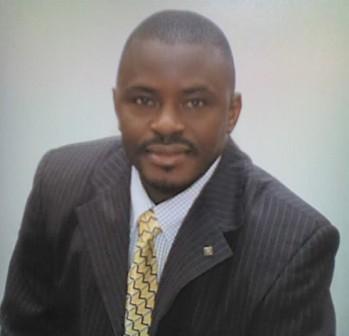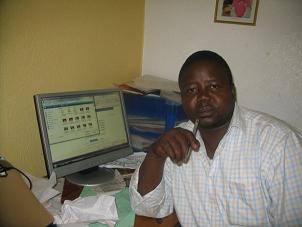Côte d’Ivoire: A case of Western Political and Social Engineering in Africa?
The current political situation in Côte d’Ivoire is indeed a messy one. And whether the country relapses into outright civil conflict or not, depends on how the complex national and international political and economic interests are mediated. The generally held view is the old cliché: the people have spoken, Laurent Gbagbo (in photo) must concede defeat.
Equally, for many of us who think the continent should grow up, there should be no place for a “backdoor to power” or what has also been called “the blackmail to power”, which is often the result of power-sharing arrangements, such as those in Kenya and Zimbabwe. Perhaps because he was robbed of the presidency in 2007 through the contemporary vogue (power-sharing), the prime minister of Kenya Raila Odinga has even called for a military intervention to forcibly remove Gbagbo, if he does not leave voluntarily.
Not surprisingly, Nicolas Sarkozy, president of France has also publicly issued an ultimatum to Gbagbo and his wife, to leave or face targeted sanctions. His, follows those of the United States which ironically, had what seemed like disputed elections in 2000 and 2004, and the European Union. The United Nations (UN) was the first international organization to come out clearly declaring Alassane Ouattara, winner of the elections. The Russians on the other hand, questioned the right of the UN to certify the results. This scenario is reminiscent of the Cold-War.
Clearly, what we are witnessing in Côte d’Ivoire is unprecedented. For the first time in Africa, the “International Community” especially the West, is united in condemning, and determined to forestall an attempt to circumvent electoral processes. Nonetheless, is this stance a genuine bulwark for “democracy”, or is it a subterfuge for the promotion of intricate Western interests in Africa, with Côte d’Ivoire being the first obvious experiment?
It may be very naive and simplistic for anyone to think that the current situation is just a dispute over election results between two men. Indeed, while political competition in Africa is increasingly becoming a basis for heightened rivalry between elites for the control of state resources, the West has seen in such competition an opportunity for the promotion of their politico-social engineering agenda.
Côte d’Ivoire is not an ordinary African country. It is West Africa’s second largest economy and the world’s largest exporter of cocoa. Prior to Gbagbo’s presidency, France had a reasonable economic interest and presence in the country. Unlike his political rivals Alassane Ouattara and Henri Konan Bedie, Gbagbo’s relationship with the West especially France, has been frosty even at best of times. He has consistently worked towards dismantling the former colonial power’s economic interests in the country.
Alassane Ouattara on the other hand, a former senior official of the International Monetary Fund (IMF), is apparently the “darling” of the West, and therefore akin to carrying out their project of social engineering, reversing Gbagbo’s tendency of leaning towards China. This may seem a revision of the old conspiracy theory. But recent revelations in the media clearly show how jittery the West, especially the US is, over the entry of China in Africa, which has given African Leaders an extended policy space.
Whilst Côte d’Ivoire may be the first obvious case of attempts by the West to engineer regime change in Africa, the notion of it influencing the outcomes of elections on continent, have persisted. With elections planned in other countries in the region, especially in those whose elections are wholly or partly funded by the donors and 3 supervised by the UN, we are likely to see more attempts at politico-social engineering. Which countries will be next will be determined by time. But with a number of countries including Liberia, attracting significant investments from China recently, in the process annoying some big powers, we may have a replay of Côte d’Ivoire in many of them. Alassane Ouattara may have won the elections, but the results are disputed with counter claims of rigging. Seemingly, the biggest cheat may have won. And there may be more to the apparent unified stance of the West in the current crisis in the country, than meets the eye.
If the current case in Côte d’Ivoire has undertones of politico-social engineering, then those African leaders who have hastily come out to condemn Gbagbo should probably have a rethink. In a world in which Western powers may want to see their backs, if they are deemed not to be working in their interests, they necessarily have to be worried. This is especially so, when they are yet to come to terms with the hitherto unforeseen implications of the International Criminal Court (ICC).
The ICC is ostensibly becoming the African Criminal Court, because of its prosecutor’s obsession of only indicting Africans, probably as a means of justifying the court’s existence and because it is easier generating consensus among the big powers in Africa, than anywhere else. No doubt, Ouattara’s sending of his supporters to the streets to be killed by desperate Gbagbo forces may seem very irresponsible, but may be a calculated attempt at getting the ICC to go after his rival in the future. He may be taking advantage of the Kenya experience, but Gbagbo and his supporters are certainly not reading the writing on the wall or just disregarding it.
by Felix Marco Conteh, School of Oriental and African Studies, University of London, UK
Stay with Sierra Express Media, for your trusted place in news!
© 2011, https:. All rights reserved.






